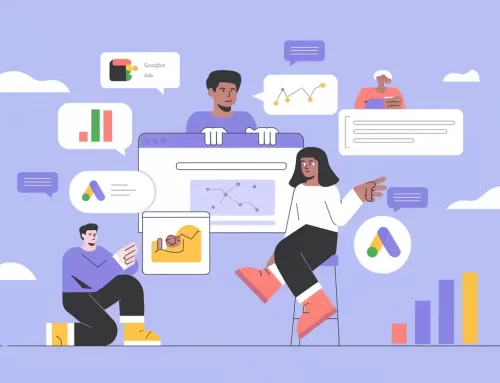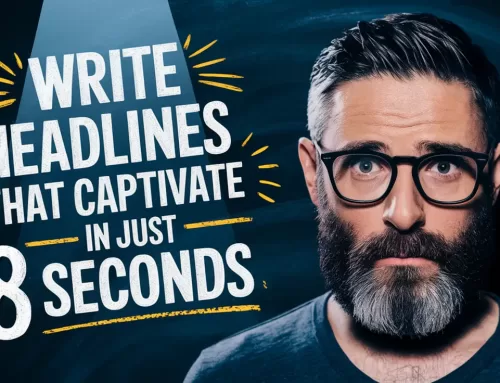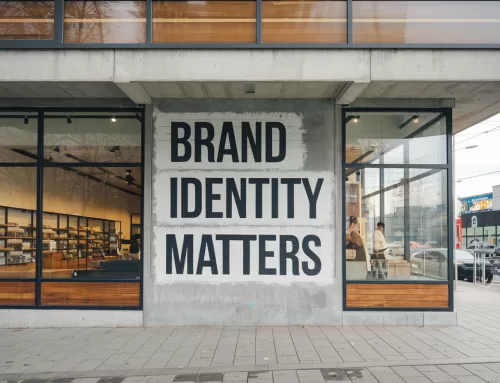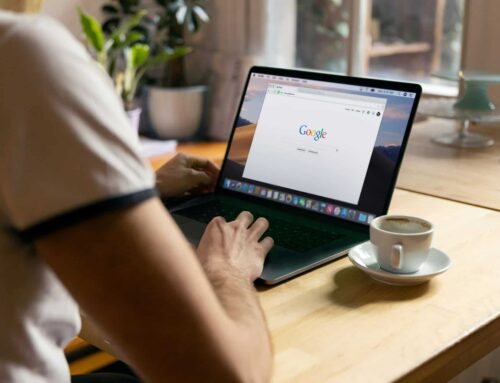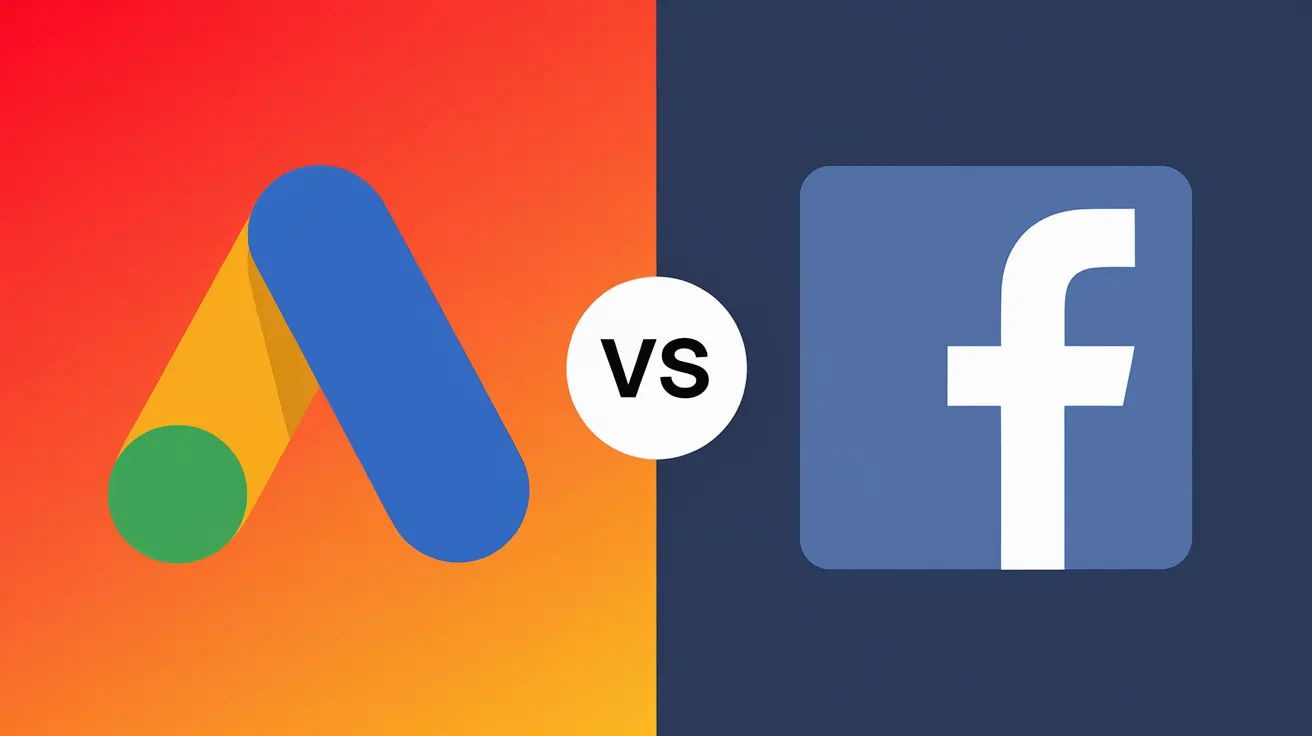
In the ever-evolving digital marketing landscape, one question consistently sparks debate: Google Ads vs Facebook Ads. Both platforms dominate online advertising, offering unique advantages, but choosing the right one can significantly impact your business’s success. With the vast digital ecosystem constantly changing, understanding the strengths and nuances of these platforms has never been more important.
Google Ads and Facebook Ads serve different purposes yet complement each other in many ways. Google Ads focuses on capturing intent—connecting you with users actively searching for solutions. It’s a tool for meeting immediate needs, making it invaluable for businesses targeting users searching for “urgent care near me” or “homes for sale in Miami.” On the other hand, Facebook Ads excels at creating demand by introducing your brand to audiences who may not yet realize they need your services. For instance, a coach can reach individuals interested in self-improvement, while a boutique hotel can entice travelers with stunning carousel ads showcasing its amenities.
This article delves deep into the unique benefits of Google Ads and Facebook Ads, providing actionable insights to help you understand how to make informed decisions. Whether you’re looking to build awareness, drive conversions, or maximize ROI, this guide will equip you with the knowledge needed to leverage these platforms effectively. Let’s get started.
The Growing Need for Online Advertising
In today’s digital-first world, online advertising is no longer optional—it’s a necessity. Businesses of all sizes are leveraging platforms like Google Ads and Facebook Ads to connect with their audiences, drive engagement, and achieve measurable results. But with the options available, knowing where to allocate your budget can be challenging. Each platform has unique strengths and caters to specific goals, which is why understanding their differences is key to success.
Why Online Advertising Matters
Online advertising allows businesses to target customers more effectively than traditional methods ever could. For instance:
- Precision Targeting: Ads can be tailored to specific demographics, behaviors, and locations.
- Cost Efficiency: With options like pay-per-click (PPC) or cost-per-thousand-impressions (CPM), businesses can control their ad spend and focus on results.
- Real-Time Insights: Platforms like Google and Facebook provide robust analytics, helping advertisers refine campaigns for better ROI.
Meeting Customer Expectations
Today’s consumers expect businesses to have an online presence. They rely on search engines and social platforms for recommendations, reviews, and solutions to their problems. By leveraging Google Ads, businesses can meet high-intent users actively searching for answers. Simultaneously, Facebook Ads help brands build relationships and introduce their offerings in a visually engaging way.
The Bottom Line
As competition intensifies, the ability to advertise online effectively can make or break a business. Google Ads and Facebook Ads aren’t just tools—they’re essential components of a winning digital strategy. Whether you aim to boost brand awareness or drive immediate sales, understanding these platforms’ unique benefits is the first step toward sustained growth.
Google Ads vs Facebook Ads: Comparing Key Features
When evaluating Facebook vs Google Ads, understanding their core features is essential to selecting the right platform for your business. Here’s a deep dive into their capabilities:
1. Targeting Capabilities
- Google Ads: Google Ads excels in intent-driven targeting. Users actively searching for specific products or services trigger ads based on keywords. For instance, a healthcare provider can target terms like “physical therapy near me,” while a real estate agent might focus on “luxury homes for sale.” Google also offers geo-targeting, device-based targeting, and time scheduling to refine campaigns further.
- Facebook Ads: Facebook leverages its vast database of user demographics, interests, and behaviors. It allows advertisers to target users based on age, location, interests, job titles, and even life events. A boutique hotel, for example, could target newly engaged couples planning their honeymoon, while a coach could reach individuals interested in leadership development.
Pro Tip: Use Google Ads for high-intent users and Facebook Ads for broad awareness and retargeting.
2. Ad Formats
- Google Ads:
- Search Ads: Text ads displayed at the top of search engine results pages (SERPs) triggered by keywords.
- Display Ads: Visual banners appearing on Google’s network of websites, ideal for building brand awareness.
- Shopping Ads: Product ads that include images, prices, and reviews, perfect for e-commerce.
- Facebook Ads:
- Image Ads: A single photo with compelling text.
- Video Ads: Short, engaging videos that tell your brand story.
- Carousel Ads: Showcase multiple products or features in one ad, allowing users to swipe through.
- Story Ads: Full-screen vertical ads optimized for mobile devices.
3. Cost Structures
- Google Ads: Operates on a pay-per-click (PPC) model, where advertisers are charged only when someone clicks on their ad. Costs vary based on keyword competition. For example:
- Keywords like “urgent care” or “buy homes in LA” can cost $5-$50 per click.
- Long-tail keywords may reduce costs while targeting niche audiences effectively.
For a detailed breakdown of Google Ads pricing trends, check out DesignRush.
- Facebook Ads: Works on a cost-per-thousand-impressions (CPM) model. Advertisers pay based on how often their ads are shown, regardless of clicks. Typical CPM rates range from $5 to $15, making Facebook Ads cost-effective for generating awareness.
4. Audience Reach
- Google Ads: Google captures high-intent users actively searching for solutions, making it an excellent tool for immediate conversions.
- Facebook Ads: Facebook targets passive audiences, leveraging its algorithm to introduce your brand to users likely to engage based on their activity and interests.
5. ROI Potential
Both platforms can deliver significant ROI when used correctly:
- Google Ads: Best for driving direct sales or leads from users ready to take action.
- Facebook Ads: Ideal for long-term engagement, building trust, and nurturing relationships.
Integrating Both Platforms for Maximum Impact
Combining Facebook Ads and Google Ads in your strategy can create a seamless marketing funnel. For example:
- Use Google Ads to capture search-driven leads at the top of the funnel.
- Retarget these users with Facebook Ads, showcasing testimonials or limited-time offers to drive conversions.
By understanding the strengths of both platforms, businesses can maximize their reach, engagement, and revenue.
Industry-Specific Strategies for Google Ads and Facebook Ads
When considering Google Ads vs Facebook Ads, tailoring strategies to your industry can make all the difference. Let’s explore how each platform can be utilized effectively across different sectors:
1. Healthcare
- Google Ads:
- Use keywords like “pediatric care near me” or “healthcare services for seniors.”
- Leverage call-only ads to connect potential patients directly with your facility.
- Include ad extensions such as sitelinks to direct users to services like urgent care or telemedicine appointments.
- Run display ads on health-related websites to build brand recognition.
- Facebook Ads:
- Create video ads showcasing patient success stories or new healthcare services.
- Target audiences based on behaviors like recent searches for health-related topics or fitness.
- Use carousel ads to highlight multiple services, such as wellness programs, vaccination drives, or diagnostic tests.
- Leverage Facebook’s “Lookalike Audiences” to find users similar to your current patient base.
2. Hospitality
- Google Ads:
- Bid on location-specific keywords like “luxury resorts in Bali” or “beachfront hotels near me.”
- Use dynamic search ads to automatically promote updated availability and pricing.
- Add call extensions for instant inquiries about room availability or amenities.
- Utilize remarketing lists for search ads (RLSA) to target past website visitors with personalized offers.
- Facebook Ads:
- Showcase amenities through carousel ads, such as spa treatments, rooftop pools, or fine dining options.
- Retarget users who browsed your booking page but didn’t complete the reservation with exclusive discount offers.
- Use immersive video ads featuring virtual tours of your property or testimonials from satisfied guests.
- Promote events or packages, like honeymoon specials or weekend getaways, to niche audiences.
3. Coaching (Life, Career, Personal)
- Google Ads:
- Target high-intent keywords like “business growth coaching” or “professional development programs near me.”
- Use responsive search ads with multiple headlines that emphasize benefits such as “increased productivity” or “career advancement.”
- Include call extensions to make it easier for potential clients to schedule consultations.
- Facebook Ads:
- Share client testimonials and success stories in video ads to build trust and credibility.
- Create lead generation ads offering free resources, such as eBooks or webinars, to attract new clients.
- Use targeted ads to reach audiences based on their interests in self-improvement, business growth, or personal development.
- Retarget users who engaged with your content but haven’t signed up for your services.
4. Real Estate
- Google Ads:
- Bid on keywords like “homes for sale in [location]” or “real estate agents near me.”
- Use Showcase Ads to present multiple property listings in a single ad.
- Employ geo-targeting to focus on users actively searching for homes in specific neighborhoods.
- Incorporate extensions to provide quick links to contact forms, virtual tours, or agent profiles.
- Facebook Ads:
- Run dynamic ads tailored to individual property preferences, showcasing homes users previously viewed.
- Use carousel ads to highlight various properties within a target area, including price and key features.
- Share success stories from buyers or sellers to build trust and demonstrate expertise.
- Target audiences based on life events, such as recently engaged couples or growing families, who may be in the market for a new home.
By aligning the strengths of Google Ads and Facebook Ads with the specific needs of your industry, you can create highly effective campaigns that drive meaningful results. Tailored strategies ensure that you not only reach your target audience but also convert them into loyal customers or clients.
The Power of Integration
Integrating Google Ads and Facebook Ads amplifies your advertising impact. For instance, use Google Ads to drive traffic to your website and Facebook Ads to retarget those visitors with tailored messages. By combining both platforms, businesses can create a robust funnel that captures attention, drives conversions, and fosters long-term relationships.
Common Misconceptions About Google Ads vs Facebook Ads
When evaluating Google Ads vs Facebook Ads, businesses often encounter misconceptions that can hinder effective decision-making. Addressing these myths can help create a clearer picture of the platforms’ strengths and how they complement each other.
1. Are Facebook Ads Too Expensive?
Many assume that Facebook Ads are costly and only suitable for big brands due to the perceived need for high budgets to achieve meaningful results. This misconception stems from comparisons to traditional advertising, where significant spending often correlates with greater impact. However, Facebook Ads offer unparalleled flexibility in budgeting, allowing campaigns to start as low as $5 per day. When compared to platforms like LinkedIn, which often have higher costs per click (CPC) and limited reach for smaller budgets, Facebook proves to be a cost-effective choice. Regular optimization of ad targeting, creative elements, and audience segmentation further ensures that even minimal budgets can yield high ROI.
2. Does Facebook Marketplace Ad Show in Google Organic Search?
Another common question is whether Facebook Marketplace ads appear in Google search results. The short answer is no. Facebook Marketplace operates as a closed ecosystem, meaning its ads are not indexed by Google. However, businesses can enhance visibility by linking their Marketplace listings to an SEO-optimized website. This strategy allows listings to benefit indirectly from Google’s organic search traffic.
3. Is It Worth It to Advertise on Facebook?
Absolutely. Facebook Ads are particularly effective for building brand awareness, fostering engagement, and creating customer relationships. For example, an independent fitness coach used Facebook Ads to reach a niche audience interested in wellness and personal growth. By running video ads that shared real-life client transformation stories, the coach gained significant traction. These ads were followed by retargeting campaigns offering free consultation slots to users who interacted with the initial videos. This strategy resulted in a 30% increase in client inquiries within a month, showcasing the power of storytelling and personalized follow-ups on Facebook.
4. Are Facebook Ads Limited by Privacy Regulations?
With recent updates like Apple’s iOS privacy changes, businesses may worry about the effectiveness of Facebook Ads. While these changes impact data tracking, Facebook has introduced tools such as the Conversions API to help advertisers track user activity more accurately. The Conversions API works by enabling businesses to send data directly from their servers to Facebook, bypassing browser limitations and mitigating the impact of tracking restrictions. For example, when a user completes a purchase or fills out a form on your website, the Conversions API ensures this data is securely sent to Facebook for campaign optimization. By aligning your first-party data with Facebook’s machine learning, advertisers can maintain accurate tracking and improve ad performance despite evolving privacy regulations.
5. Are Google Ads Better for Immediate Conversions?
It’s often believed that Google Ads outperform Facebook Ads for immediate sales. While Google Ads excel at capturing high-intent searches, Facebook’s retargeting capabilities can nurture leads over time, driving conversions in longer sales cycles. Combining both platforms allows businesses to capture intent-driven leads and re-engage them with compelling Facebook Ads. For instance, a boutique hotel ran a Google Ads campaign targeting search terms like “luxury hotels in Bali” and used Display Ads to attract travelers actively searching for vacation options. Simultaneously, the hotel utilized Facebook retargeting ads to showcase their amenities, such as spa treatments and rooftop pools, to users who clicked on their Google Ads but didn’t book. This dual-platform strategy not only increased website traffic by 40% but also led to a 25% boost in direct bookings within two months.
By dispelling these misconceptions and leveraging each platform’s unique strengths, businesses can create a balanced and effective digital advertising strategy.
For tips on crafting engaging headlines that improve ad performance, explore this guide: Write Headlines That Captivate in Just 8 Seconds. By dispelling these misconceptions, businesses can better understand the true potential of Facebook Ads and how they complement Google Ads in a robust digital strategy.
Case Study: Leveraging Facebook Ads and Google Ads for Hotels to Drive Bookings
Hospitality businesses are uniquely positioned to benefit from Google Hotel Ads, a specialized platform tailored to enhance visibility and bookings for hotels. By targeting high-intent travelers actively searching for accommodations, Google Hotel Ads ensures your property stands out when it matters most.
The Strategy in Action
A boutique hotel in New York utilized Google Hotel Ads to attract international tourists searching for “luxury resorts in New York.” By bidding on high-intent keywords like “beachfront hotels in NYC,” the hotel ensured its listings appeared prominently on Google’s search results and Maps. They also leveraged features like price filters and photos to engage potential guests.
Simultaneously, the hotel used Facebook Ads to retarget users who had visited their booking page but hadn’t completed a reservation. Using carousel ads showcasing amenities like a rooftop pool and gourmet dining, they drove repeat engagement.
The Results
The combined approach led to a 35% increase in direct bookings within three months. Google Hotel Ads captured users in the research phase, while Facebook Ads nurtured leads to finalize their bookings. This dual strategy highlights the power of combining platforms for maximum ROI.
Key Takeaway
For hotels and other hospitality businesses, integrating Google Ads for hotels with Facebook retargeting ads creates a comprehensive funnel. This approach captures intent-driven searches and nurtures potential guests, driving engagement and bookings effectively.
The Future of Google Ads and Facebook Ads in 2025
As we look ahead to 2025, the digital advertising landscape continues to evolve, with both platforms introducing innovations to stay competitive and relevant.
Trends in Google Ads
- AI and Automation: Google Ads is leaning heavily on AI-driven solutions like Performance Max campaigns, which automate bidding, targeting, and ad placements to optimize performance. These advancements help advertisers focus more on strategy and less on manual campaign management.
- Voice Search Optimization: With the rise of smart speakers and voice assistants, businesses should optimize their ads for natural language queries. This trend ensures better engagement with users searching via voice.
- Visual Search Integration: Google is exploring ways to integrate visual search into its advertising ecosystem, allowing users to shop or learn more about products simply by taking a photo.
Trends in Facebook Ads
- Enhanced Interactive Content: Expect Facebook Ads to offer more immersive ad formats, such as augmented reality (AR) and virtual reality (VR) experiences. These formats will provide brands with creative ways to engage users.
- First-Party Data: With increasing privacy regulations, advertisers will rely more on first-party data collected directly from customers. Facebook’s Conversions API and other tools will help businesses bridge data gaps effectively.
- Shopping Integration: Facebook and Instagram are becoming go-to platforms for social commerce. Features like in-app shopping and shoppable posts will continue to drive purchases directly from ads.
How to Stay Ahead
To stay competitive, advertisers need to adapt quickly to these trends. Whether it’s by leveraging AI tools in Google Ads or crafting interactive experiences on Facebook, staying informed is key.
For expert guidance on maximizing ROI with these platforms, check out Aishwarya Pillai: Certified Google Ads Expert. With years of experience, Aishwarya provides actionable strategies tailored to your business goals.
Conclusion
Both Google Ads and Facebook Ads offer distinct strengths, making them valuable assets in any digital marketing strategy.
Recap of Google Ads
Google Ads excels at capturing high-intent users who are actively searching for products or services. Its ability to connect businesses with audiences at the exact moment they need a solution makes it an essential tool for industries like healthcare, where immediacy is key, and real estate, where buyers actively search for listings.
Highlighting Facebook Ads
On the other hand, Facebook Ads thrive in building brand awareness and engaging users through visually compelling content. Its robust targeting capabilities allow businesses in industries like hospitality and coaching to create demand, foster connections, and build trust with potential customers.
Recommendation: A Combined Approach
A combined strategy leveraging both platforms can yield remarkable results. For example, using Google Ads to capture search-driven leads and Facebook Ads to retarget those users or nurture them further down the sales funnel is a highly effective method. This approach is particularly impactful for businesses in healthcare, hospitality, coaching, and real estate, where both intent and relationship-building play critical roles in conversions.
Start crafting your advertising strategy today by understanding the unique benefits of each platform and integrating them into a cohesive plan. To explore advanced strategies and expert tips, check out this resource from HubSpot: How to Create a Marketing Strategy. Combining insight with action will help you unlock new growth opportunities and thrive in the digital landscape.

